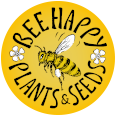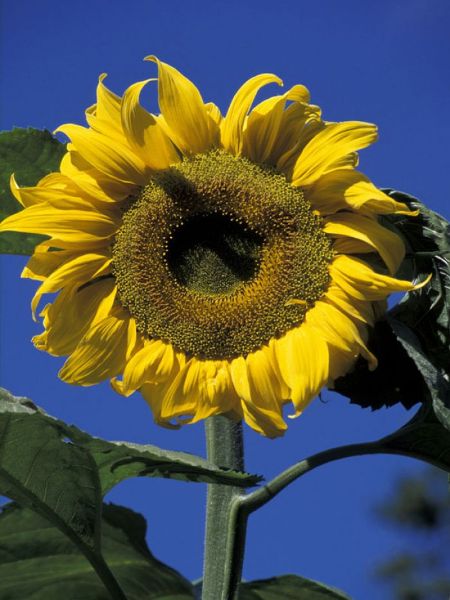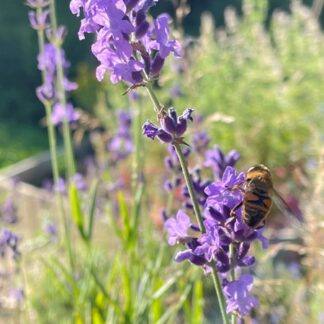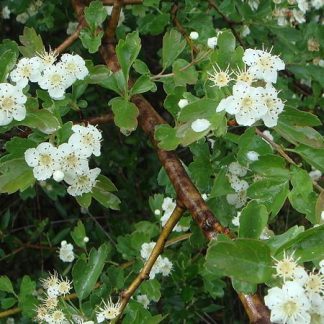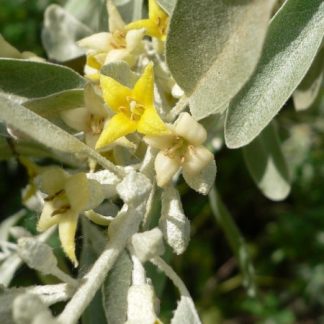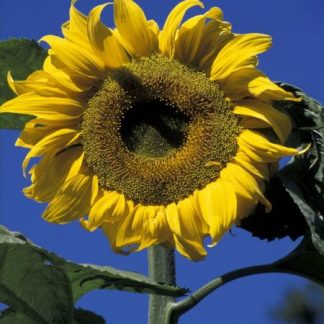Description
Asteraceae(family)
Forage for Pollinators: Nectar and Pollen is produced and foraged by Honeybees, Bumblebees both long and short-tongued, Solitary bees and flies. The pollen is especially sought after in autumn when there are few sources of pollen available. Sunflowers are rarely self-pollinated and most need pollen transferred to them from other sunflowers. Seed yield of sunflower crops is significantly increased by taking honeybee colonies to them. There are also extrafloral nectaries in bracts and upper leaves.
Flowering time: July, August, September.
Growing information: ANNUAL growing to 3 m (9ft) by 0.3 m (1ft in). Open-pollinated, organic. Hardy to minus 17ºC. This can be a major source of nectar and pollen in warmer climates than the UK, such as France, yielding 30-100 pounds of honey per acre, and 200-250 pounds of pollen. Increasingly being grown here in the UK on field-scale for game cover and bird-seed, and this is of great benefit to bees when organically grown. The oil of sunflower seeds contains between 44 – 72% linoleic acid, 24% protein and a whole array of vitamins and minerals. The annual sunflower is best sown under cover in pots (in the greenhouse in spring March/April) and planted out after danger of frost has passed, and as soon as it is big enough to sustain slug attacks. If you want your ‘Giant Yellow sunflowers to grow taller, choose an area sheltered from wind and in full sun, and water and feed regularly. Many varieties have been bred, but we stock just the tall, Giant Yellow variety and a dwarf-type which is multi-headed ‘Peredovick’ – sowing rate: 10 kg per acre (25 kg/ha, 2.5 g/m²).agricultural variety ‘Peredovick‘ which is also organic
